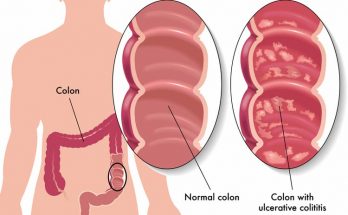Yes – hernias are a common cause of abdominal and stomach pain. But what exactly is a hernia?
What is a hernia?
Hernia is a disease that affects millions. The most common hernias are affecting the abdomen but there are many other types of hernia that people should be aware of.
Organs should stay in the body cavities that are supposed to hold them. When hernia occurs, an organ or a tissue pokes out of its normal position. The cause of this is usually muscular weakness. Some people compare hernia with a tire failure – a used tire can crack, allowing the inner tube to come out through the tire’s cracks. This is exactly what happens when you suffer from hernia. The tire represents the old and weakened muscular fiber that has to hold a certain organ in place and that cracks, thus creating a bulge that later evolves into a hole, and the inner tube represents the organ or tissue that pokes through the hole.
When hernia occurs, usually a small lump appears at the affected area, and in most cases this lump is painful. Furthermore, this lump is more visible if you cough or sneeze, and if the hernia is in an advanced state coughing and sneezing is also painful. It is best if hernia is repaired through surgery shortly after its detection because complications are most likely to appear. Among these complications there can be intestinal blockages, cangrene, and in some extreme cases untreated hernias can lead to death. Hernia surgery is quite simple and it succeeds in almost all cases. After the surgery a short time of recovery is needed.
Types of hernia
As mentioned before the most common type of hernia is abdominal hernia. But abdominal hernia can also have a few different forms. From these, inguinal hernia is very widespread. Inguinal hernia is also known under the name ‘Gilmore’s groin’. Inguinal hernia occurs when the upper part of the stomach ‘slips’ through a hole in the inguinal canal. Mostly men suffer from inguinal hernia, and one of its synthoms is pain in the testicles because the hernia contents enter the scrotum.
Other types of hernia are : umbilical, femoral, incisional, sports or diaphragmatic hernia.
Umbilical hernia affects new born children. Because of a weakness in the belly button, abdominal content pushes through it and a lump of variable size occurs. In time, umbilical hernia heals itself, because skin grows and covers the belly button.
Diaphragmatic hernia is the result of a part of the stomach or intestine pushes into the toracical cavity through a weakness in the diaphragm
Incisional hernia results when a wound coming from a surgery opens and lets an organ pass through it.
The surgical reparation of hernia is done by pushing the organ that moved back into its place and that closing the hole. After the surgery a short time is needed to recover, usually one or two weeks, but harder activities like weightlifting are prohibited for a longer time.

